Fuel Tanker Truck / Oil Tanker – Diesel & Petrol Transport with Safety Compartments
CLW GROUP fuel tanker trucks for safe and efficient transport of gasoline, diesel, or kerosene. Features multiple compartments, anti-static devices, bottom loading, and optional fuel dispenser. Built on Dongfeng, Sinotruk, Isuzu, FAW chassis.
Transport Fuel Safely, Deliver It Precisely
CLW GROUP Fuel Tanker Trucks are designed for the secure and efficient delivery of gasoline, diesel, aviation fuel, and other petroleum-based products. Engineered with reinforced tanks, multi-compartment layout, and safety systems to prevent spills, fire, or static discharge.
Key Features:
✔️ Tank volumes from 5,000 to 30,000 liters
✔️ Multiple compartments (2–6) for mixed fuel transport
✔️ Carbon steel, stainless steel, or aluminum alloy tank
✔️ Bottom loading and vapor recovery system
✔️ Optional fuel dispenser, flow meter, and hose reel
✔️ Emergency valve, anti-static device, and fire extinguisher box
✔️ Mounted on CLW, Dongfeng, Sinotruk, FAW, Isuzu chassis
Trusted by fuel suppliers, gas stations, mining sites, and transport fleets worldwide.
Technical specifications:
| Specification | Details |
|---|---|
| Chassis Brand | CLW, Isuzu, Sinotruk, Sitrak, HOWO, Shacman, Dongfeng, FAW, Foton, Beiben, JAC, JMC |
| Drive Type | 4×2, 6×4, 8×4 |
| Tank Volume | 5,000 – 30,000 Liters |
| Tank Material | Carbon Steel / Stainless Steel / Aluminum Alloy |
| Compartments | 2–6 (customizable) |
| Loading System | Top or Bottom Loading, Anti-overflow Valve |
| Optional Features | Dispenser, Flow Meter, Hose Reel, Fire Extinguisher |
Fuel Tanker Truck / Oil Tanker – Diesel & Petrol Transport with Safety Compartments
Fuel tanker trucks, also known as oil tankers, fuel trucks, or tanker trucks, are specialized vehicles engineered for the efficient and safe transport of liquids such as petrol, diesel, and other fuels. These fuel trucks serve critical roles in the petroleum and logistics industries, moving substances from refineries to service stations, industrial facilities, and more. Built with precision and guided by advanced safety standards, each fuel tanker truck, including popular models such as the Sinotruk Howo 8×4 fuel truck, offers solutions tailored to both urban and remote area distribution networks.
Understanding Fuel Tanker Trucks: Their Purpose and Significance
Fuel tanker trucks are used across a range of industries for transporting combustible substances. These vehicles are designed to haul various liquids, including gasoline, oil, LPG, and diesel, within compartments that ensure safety and reduce contamination risks. Companies utilize these trucks due to their optimized fuel tank capacity and custom safety mechanisms.
Structure and Design of Tanker Trucks
The structure of a fuel tanker truck includes a chassis, tank, safety valve system, oil pump, piping system, and compartments. The materials used in constructing the tanks vary depending on their intended use. For example, carbon steel and aluminum are commonly used for general fuel transport, while stainless steel is preferred for chemicals and corrosive substances. Some tankers are insulated or non-insulated based on whether they carry temperature-sensitive liquids.
Types of Fuel Tanker Trucks
Fuel tanker trucks are available in various configurations based on axle arrangements (4×2, 6×4, 8×4) and tank capacities. Single-axle trucks are suitable for small-scale transport and tight spaces, whereas heavy-duty 8×4 trucks like the Sinotruk Howo are ideal for long-haul and bulk fuel deliveries.
- 4×2 Tank Trucks: Known for efficiency in urban transport.
- 6×4 and 8×4 Fuel Tankers: Designed for carrying larger loads over longer distances.
- Petroleum and LPG Tankers: Built with high-pressure and pressurization systems.
Safety Features and Compartmentalization
Tanker truck safety is essential due to the hazardous nature of the substances being transported. Features such as anti-overflow sensors, emergency shutoff valves, reinforced tanks, and multiple compartments reduce risks during transit. Compartments help distribute weight evenly and allow transportation of different substances within a single vehicle.
You can learn more about industry-standard fuel transport safety from U.S. Department of Transportation – PHMSA.
Fuel Tanker Capacity and Volume Options
Fuel trucks vary in size and volume capacity. From small 3,000-liter tankers to large 40,000-liter vehicles, manufacturers design these vehicles to carry liquids with precision. Capacities can be expressed in litres or US gallons and depend on the number of axles and material of the tank.
- Small capacity: 3,000 to 10,000 liters
- Medium capacity: 10,000 to 25,000 liters
- Large capacity: 25,000 to 40,000+ liters
Materials Used in Tank Construction
Tank trucks use various materials depending on their cargo. Common options include:
- Carbon steel: Cost-effective and strong
- Aluminum: Lightweight and corrosion-resistant
- Stainless steel: Best for chemical or sensitive fuel
Material selection is influenced by environmental protection concerns and compatibility with the fuel or oil carried.
Applications of Oil Tanker Trucks
Oil tanker trucks are commonly used by fuel suppliers, gas station chains, petroleum companies, and government logistics departments. They are responsible for bulk transport of diesel, petrol, propane, LPG, and even aviation fuel.
Some tankers are equipped to handle non-pressurized or pressurized liquids, including dangerous goods. The piping systems allow fast unloading, gravity-fed or pressurized delivery, depending on infrastructure.
Fuel Transportation Efficiency
Fuel transport efficiency is vital to prevent leakage and contamination. Features such as gravity-assisted valves, oil pumps, and reinforced brake systems ensure safety and delivery precision.
Global Demand and Suppliers
The fuel tanker truck industry is growing due to increased energy demand worldwide. Manufacturers like Sinotruk and others offer tailored solutions for regional and international needs. The Sinotruk Howo fuel truck is a top choice for commercial fleets across Asia, the Middle East, and Africa.
Howo Fuel Tanker Trucks and Their Advantages
Howo fuel trucks stand out due to their reliable chassis, multiple compartment configurations, and advanced safety systems. Available in 6×4 and 8×4 variants, these trucks are suitable for long-distance fuel transportation. They’re also compatible with different types of liquids, including LPG and gasoline.
Key features:
- Durable sinotruk howo chassis
- Oil pump and valve system
- Optional GPS tracking
- Compartmentalized oil tank
Sinotruk and the Fuel Transport Industry
Sinotruk is a recognized name in commercial vehicles. Their fuel tankers are known for durability, large load capacity, and reinforced frames. With innovations in axle load distribution and environmental safety, Sinotruk contributes to safer and more efficient fuel transportation.
Environmental Considerations
Modern tankers are designed with environmental protection in mind. Leak-proof systems, flame-resistant materials, and sealed valves help minimize risks. Additionally, tankers are subjected to emissions standards and safety inspections.
Specialized Fuel Tankers
- LPG and Propane Tankers: Built for high pressure, often cylindrical with advanced insulation.
- Gasoline Tankers: Non-insulated, multi-compartment for different octane levels.
- Diesel Tankers: Medium to large capacity, suitable for refueling stations.
Maintenance and Inspection
Regular inspection ensures safety and longevity. Key checks include:
- Brake system testing
- Valve calibration
- Pipeline and pump inspection
- Tank integrity scan
CLW Group’s fleet also includes a dedicated water tanker truck (bowser), designed for efficient water transport and delivery in municipal, construction, and agricultural settings.Conclusion
Fuel tanker trucks are indispensable to global fuel transportation. With precise engineering, high safety standards, and adaptability, these trucks carry liquids efficiently across cities and continents. From Sinotruk Howo fuel trucks to multi-axle aluminum tankers, the industry’s evolution continues to meet the growing energy and logistics demands.
Before investing or operating such a vehicle, always consult regulatory guidelines and partner with certified suppliers for maximum efficiency and safety.
You must be logged in to post a review.
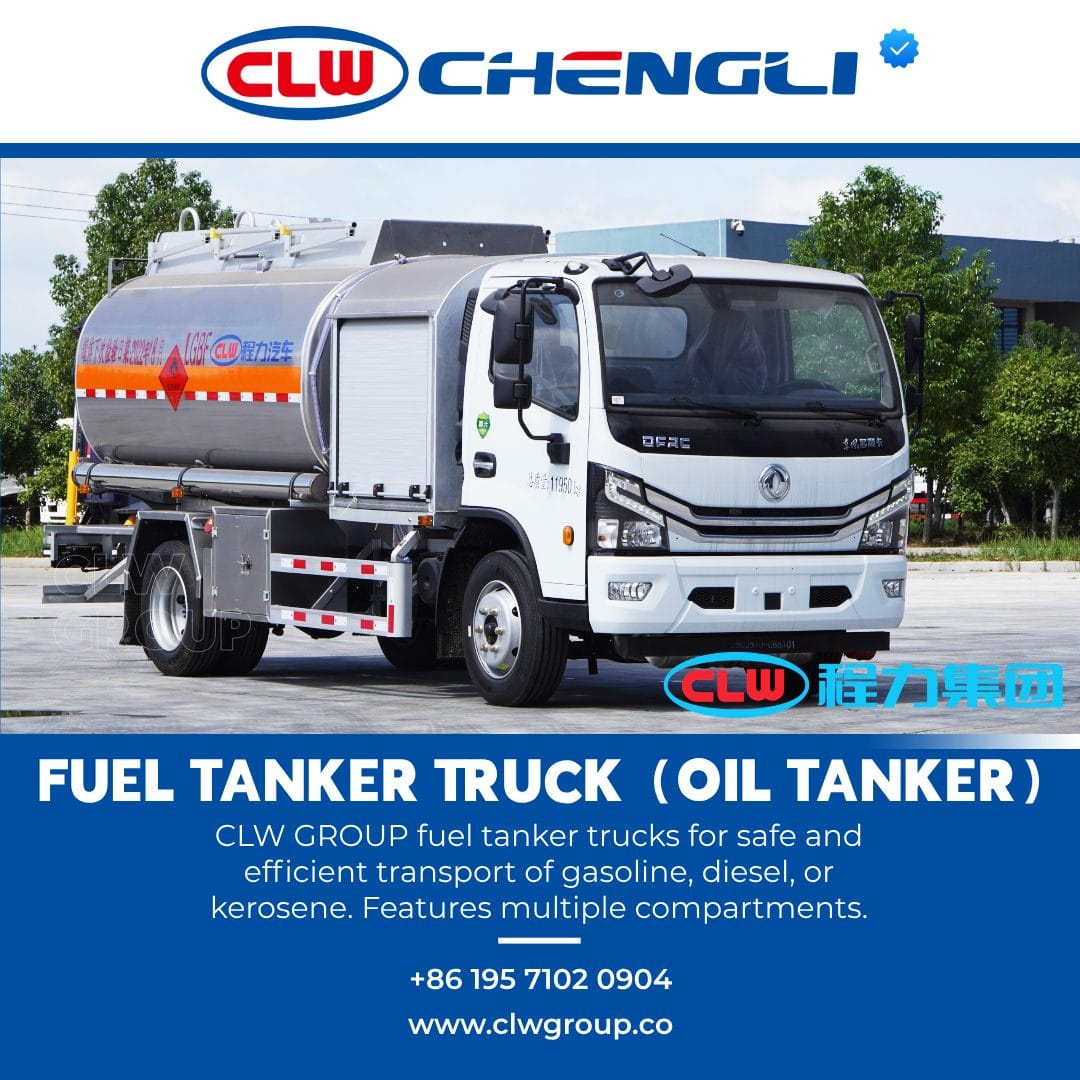
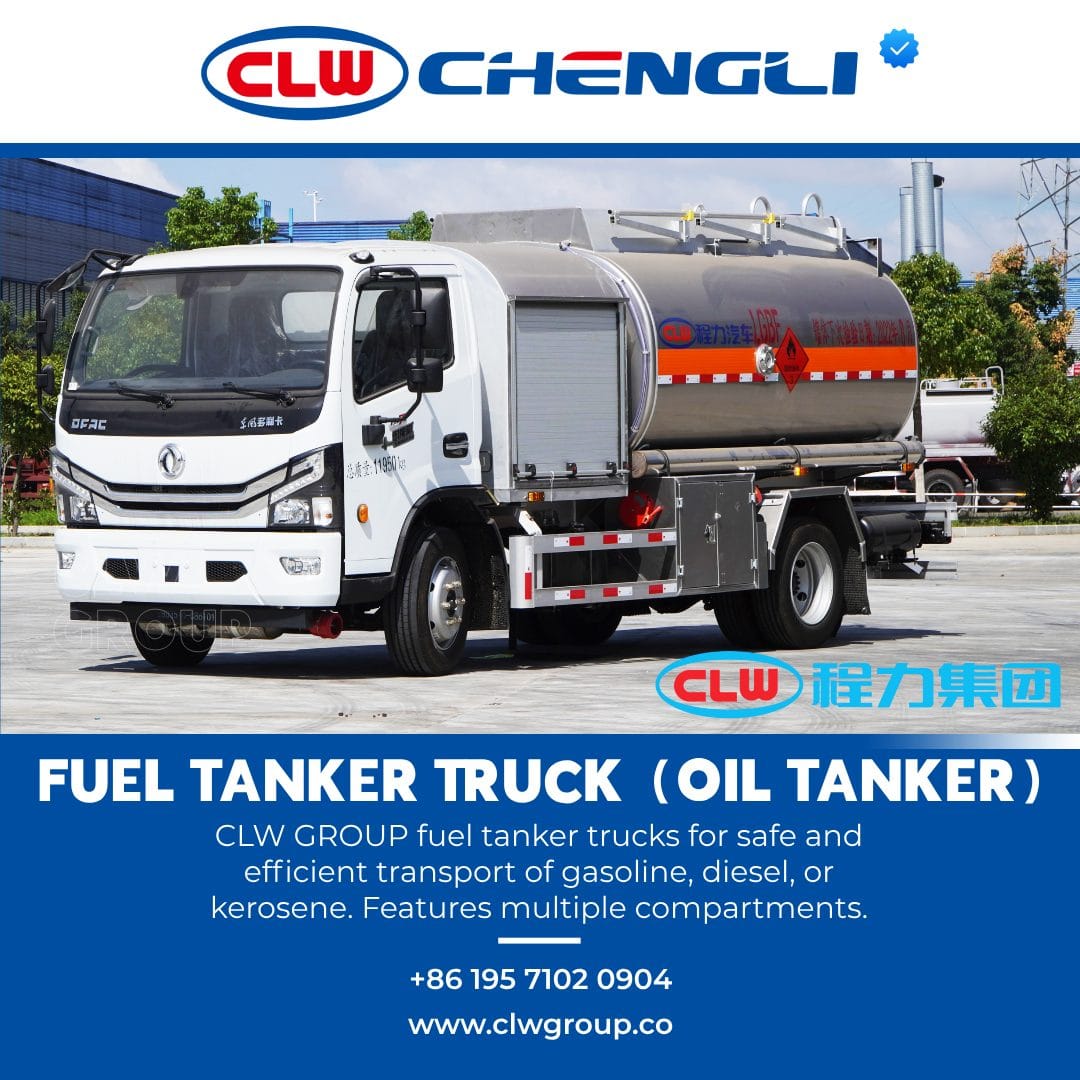
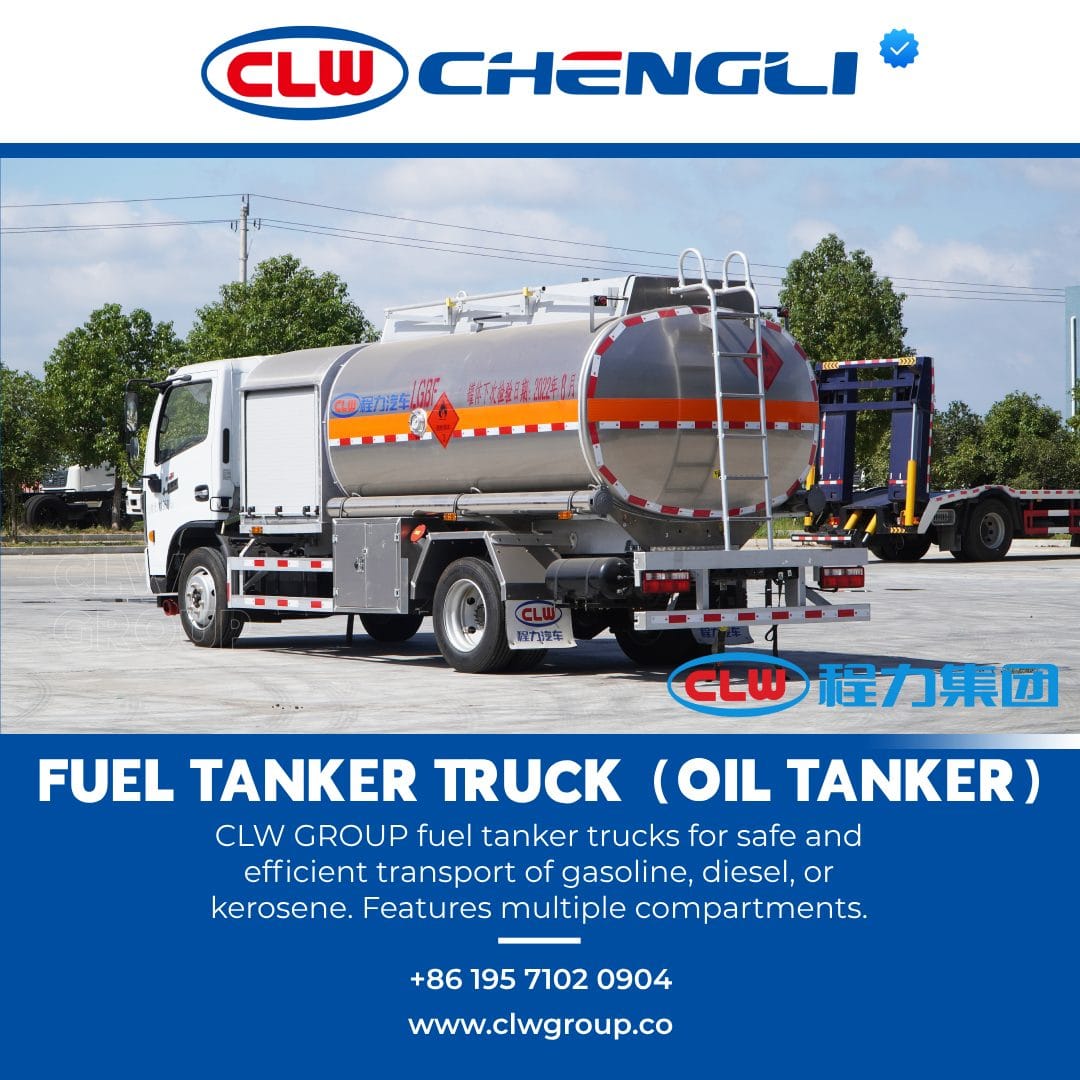
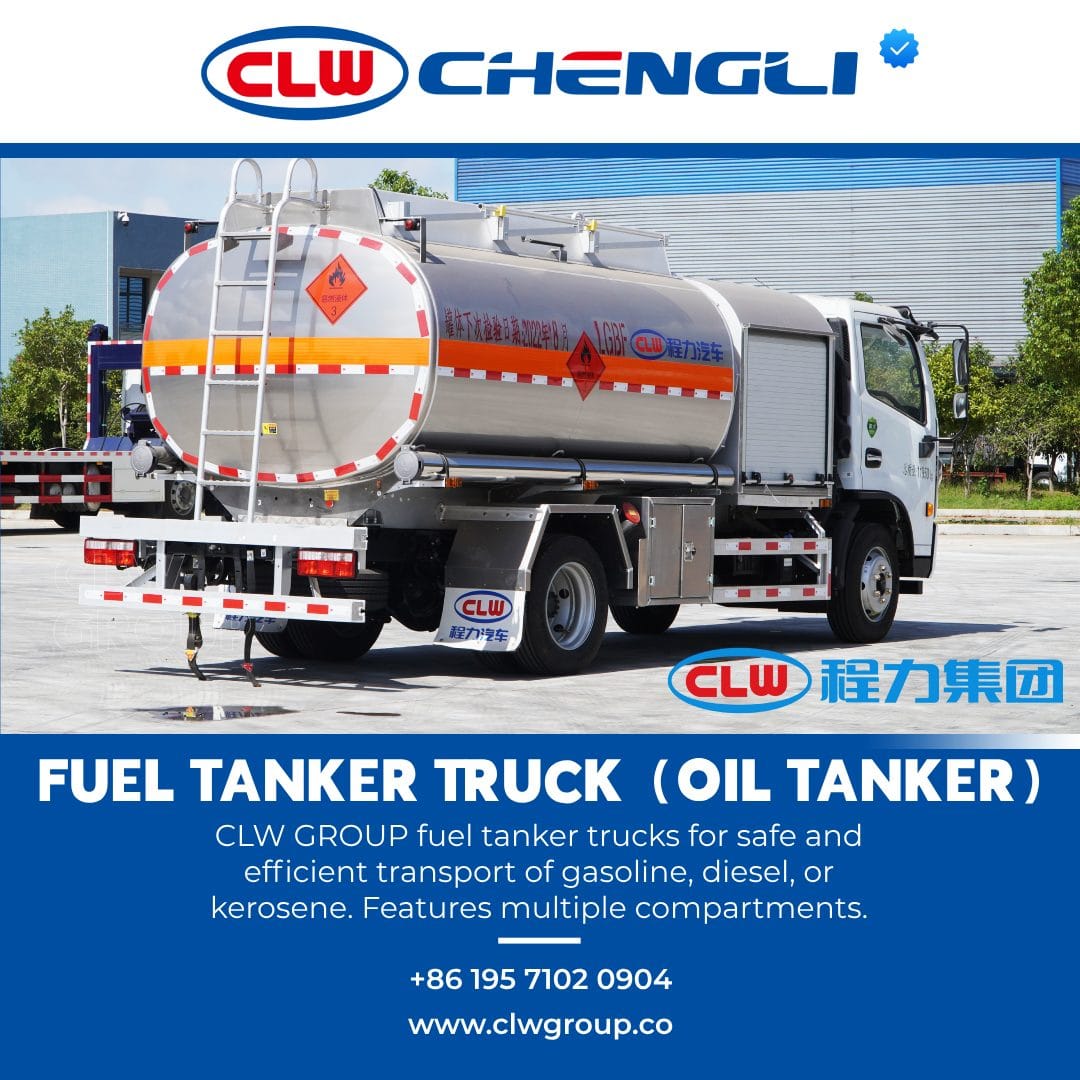
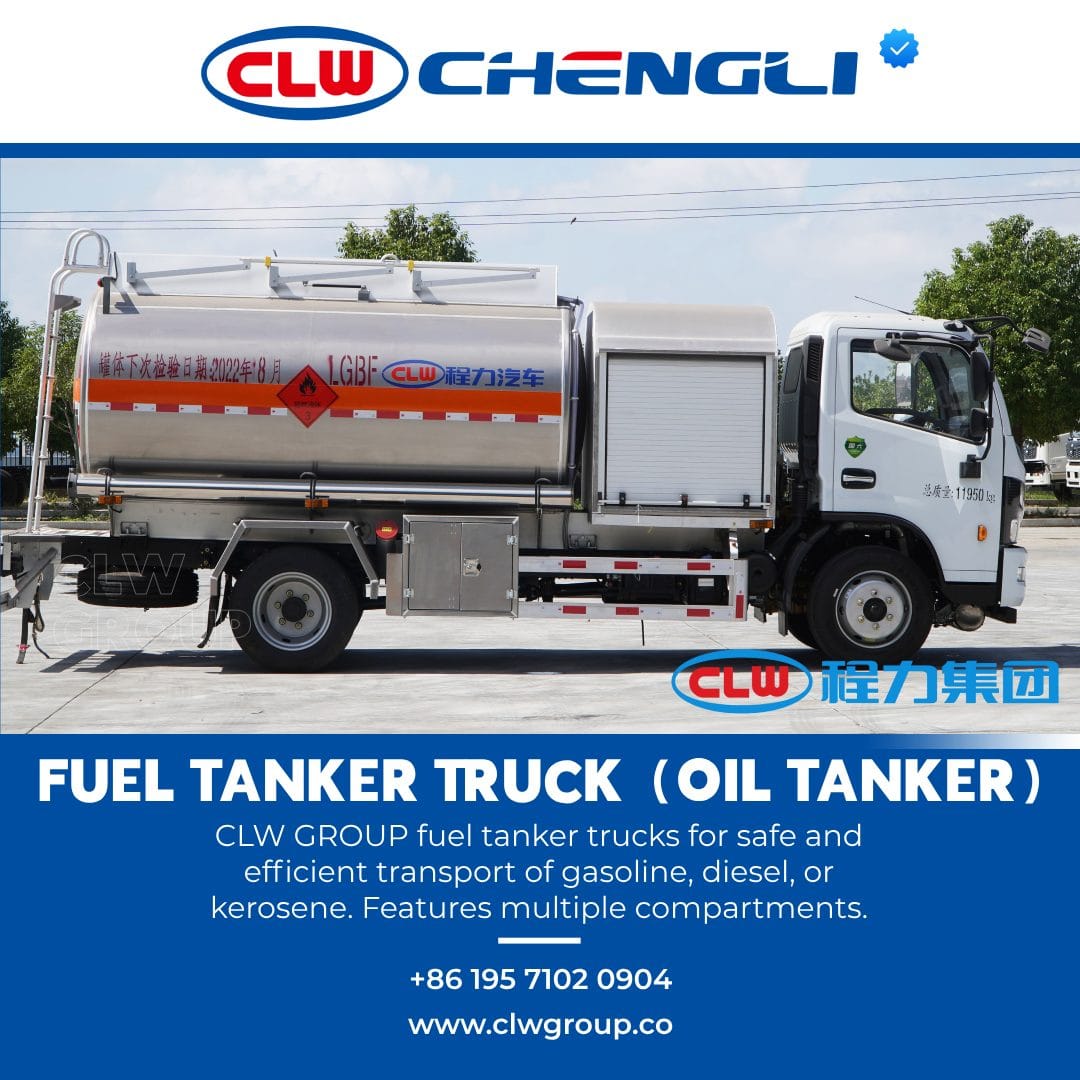
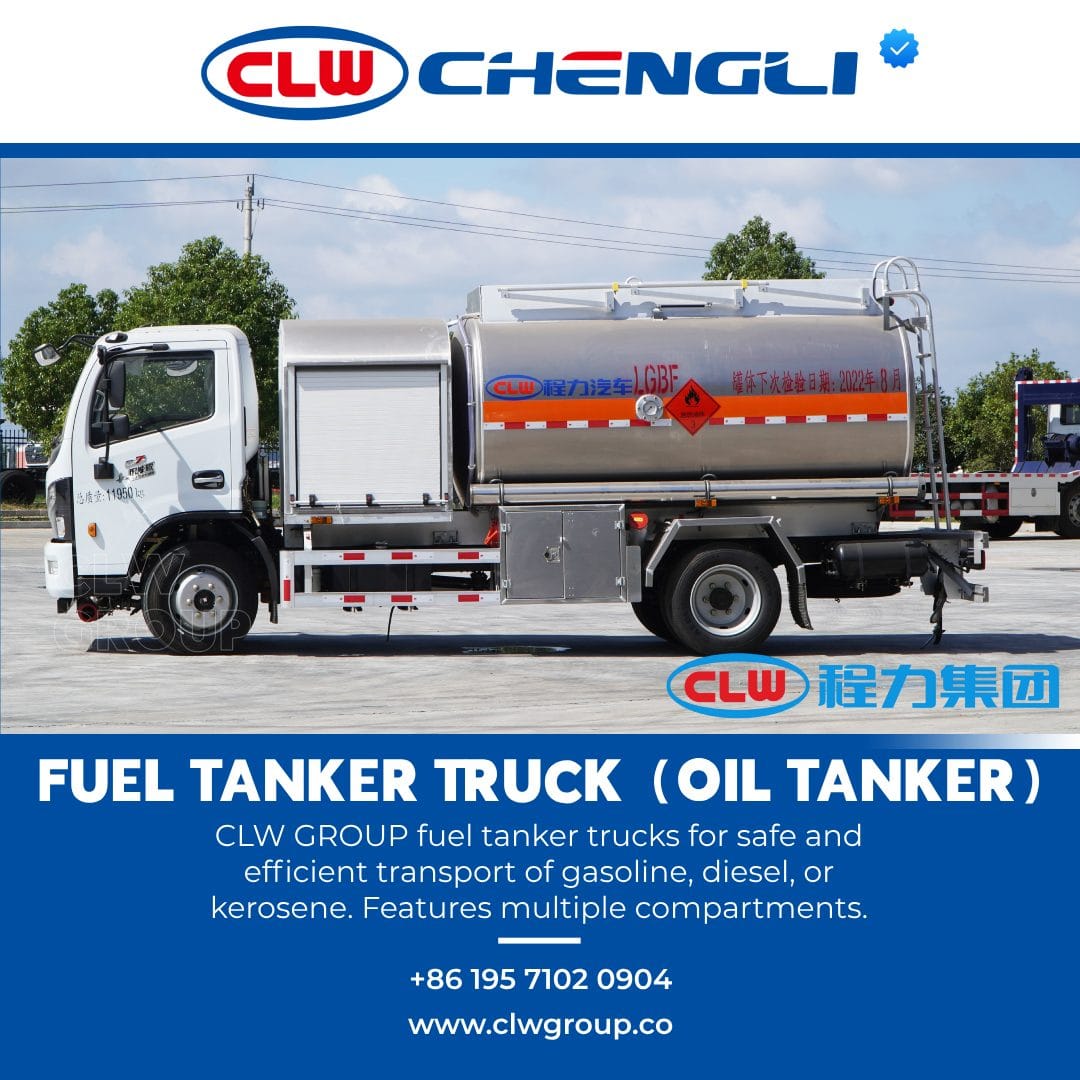
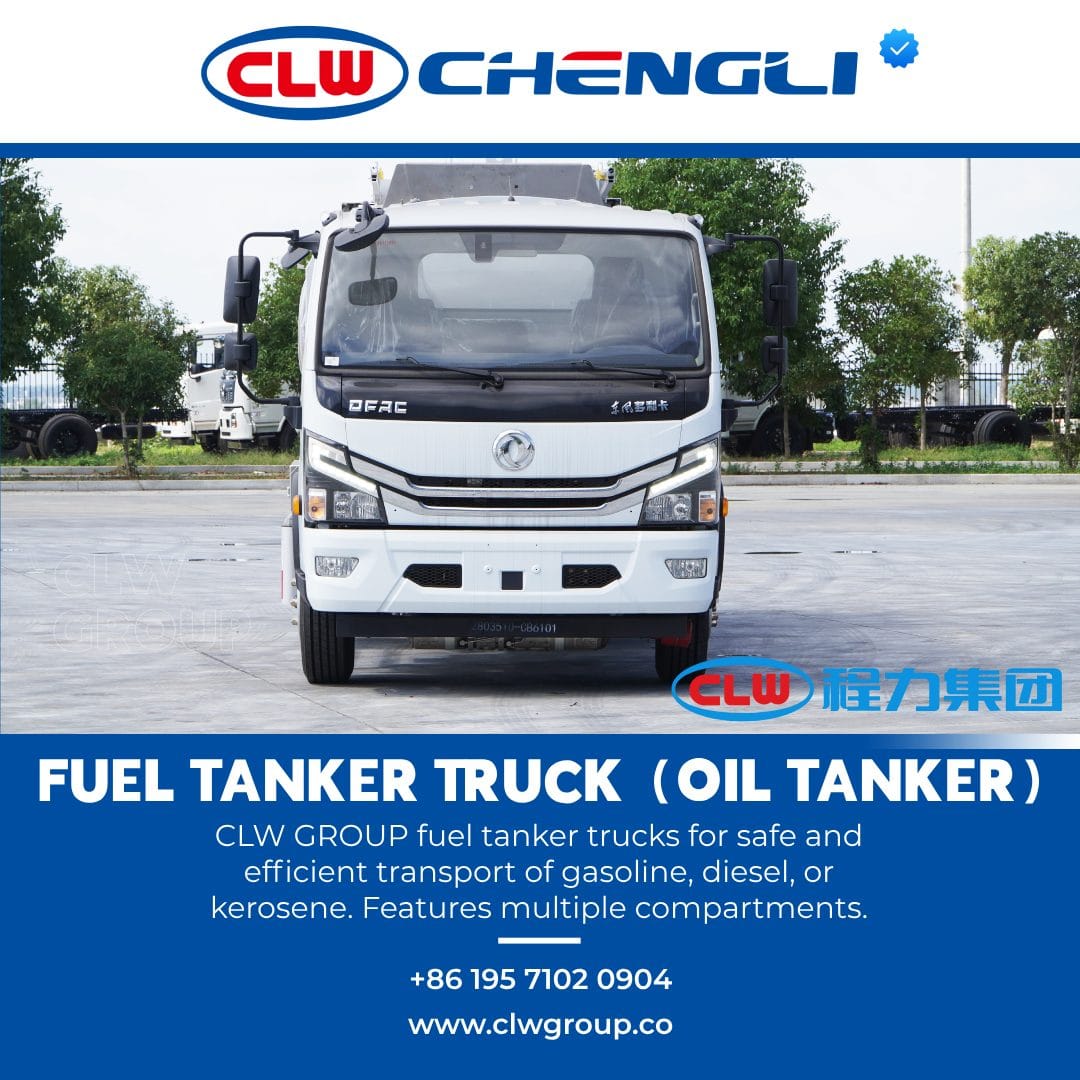
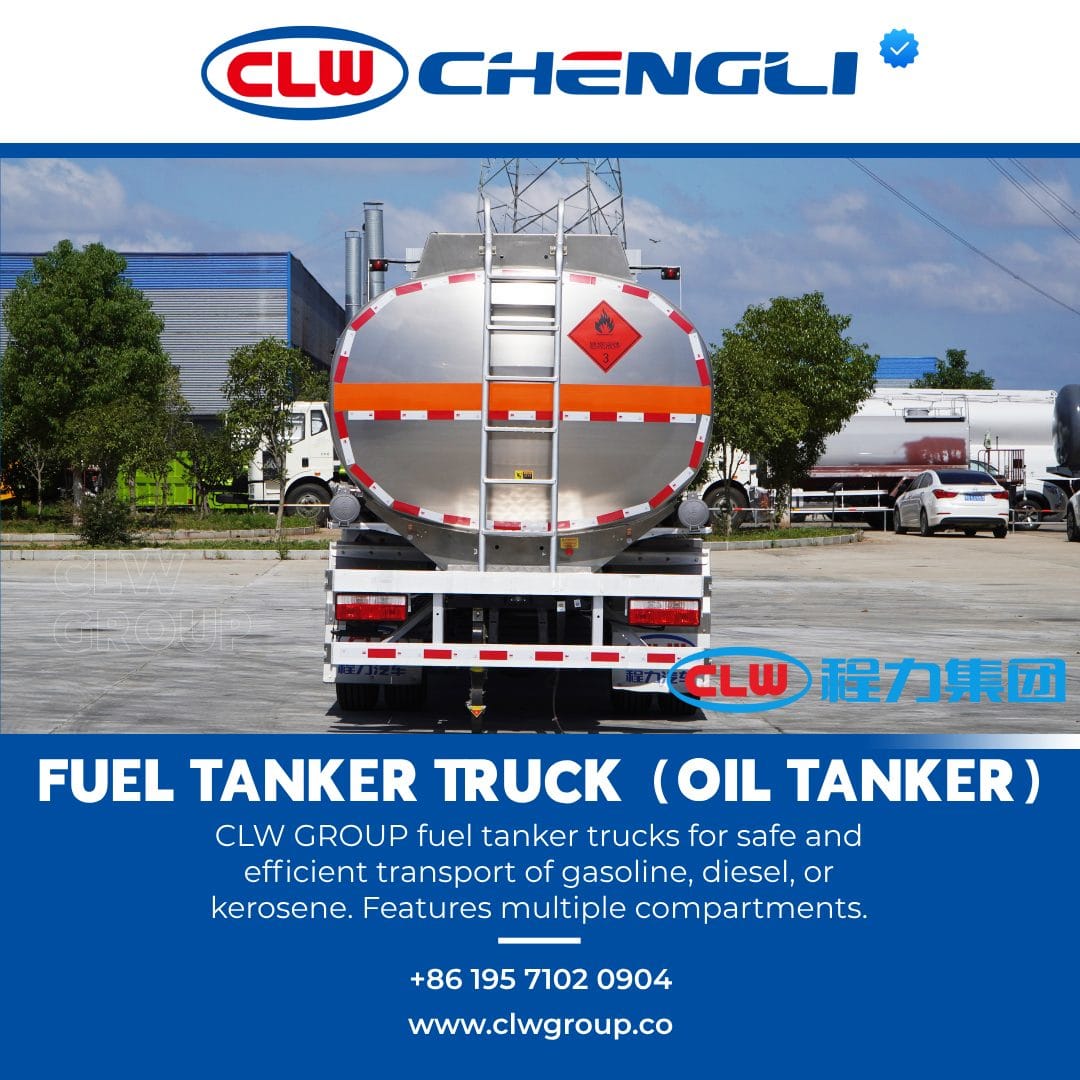
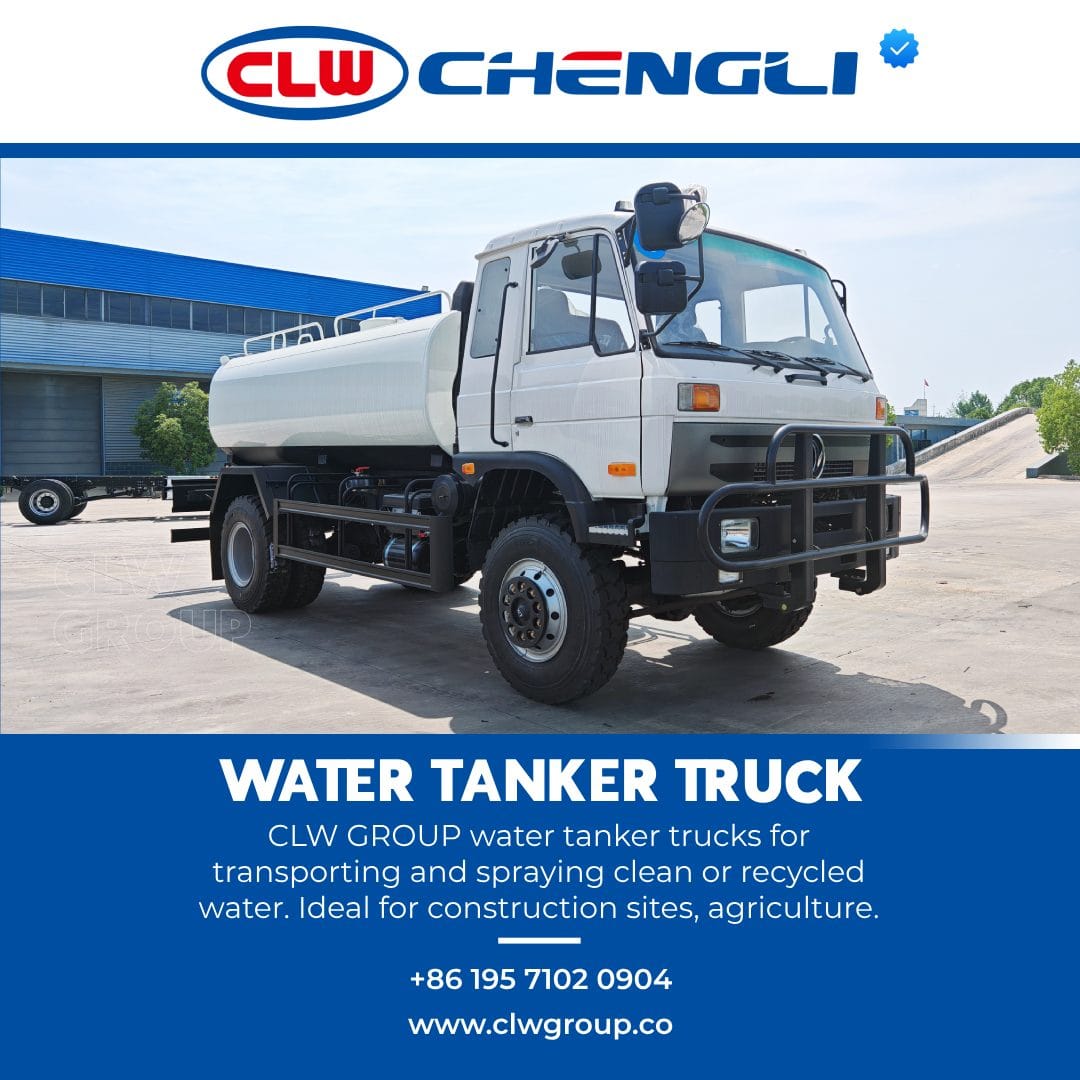
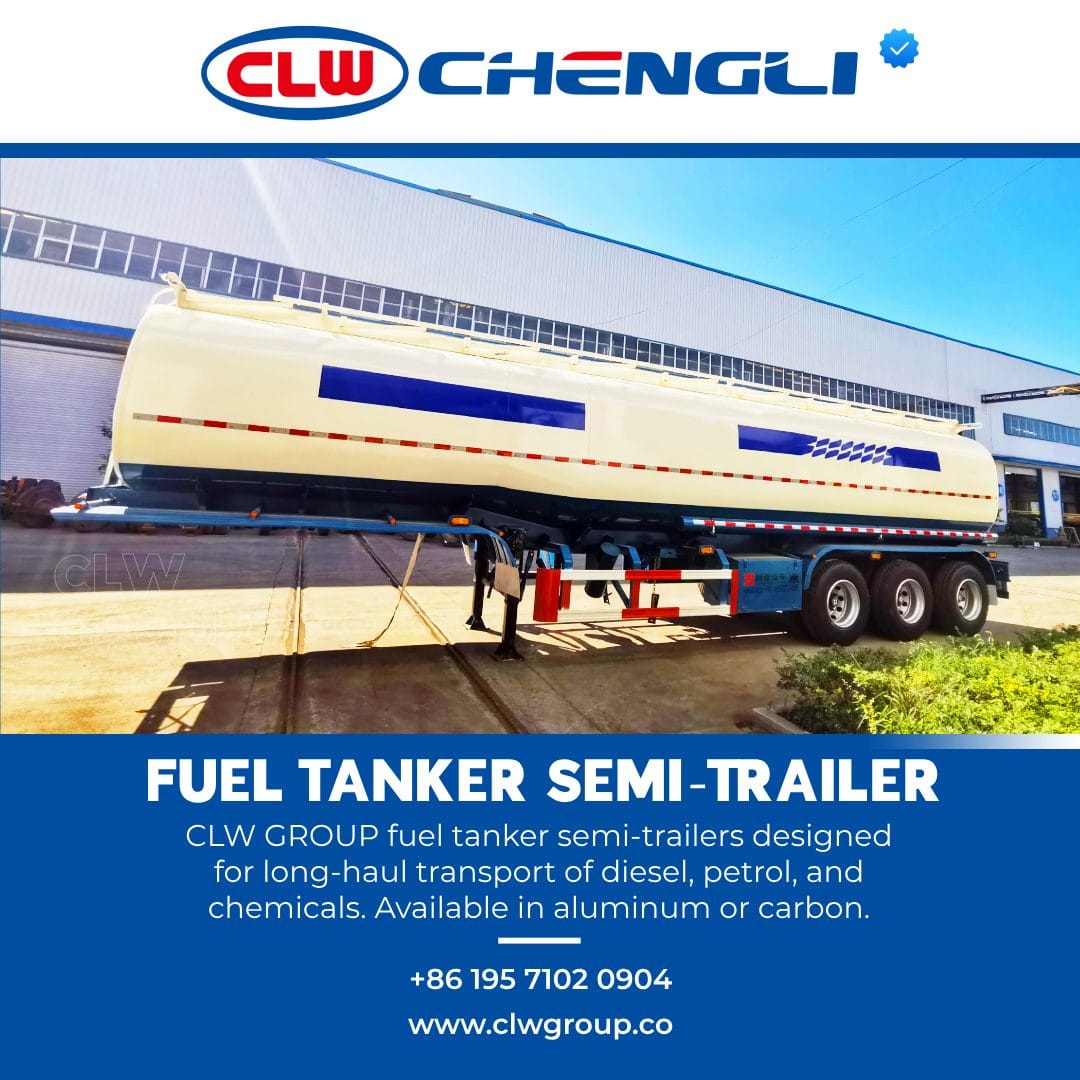
Reviews
There are no reviews yet.